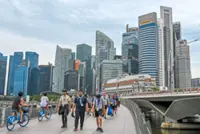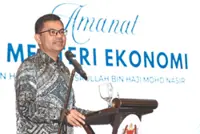GENEVA: China has initiated dispute settlement proceedings against the United States at the World Trade Organisation (WTO) to safeguard its interests in the electric vehicle (EV) industry, the Chinese mission says and the WTO confirmed.
China said it was contesting “discriminatory subsidies” under the US Inflation Reduction Act (IRA) that it said resulted in the exclusion of goods from China and other WTO countries.





